‘Babe’, ‘love’ or ‘darling’: colloquial terms of endearment or sexist condescension? We asked you what you think
It was recently revealed that the Brighton and Hove-based Bus and Coach Company have introduced new rules that threaten bus drivers with the sack if they call passengers names such as 'babe’, ‘love’ or ‘darling’, on the basis that such terms of address are offensive to women patrons. To try and find out more, we asked you:
Do these words really offend?
Many of you responded that you feel that such terms are sexist, while others said that they are merely affectionate means of friendly conversation. However, it is clear that the offensiveness of names like “babe” really depends on a variety of factors, including:
- The relationship between the parties concerned
- The location (for example, some terms seem to be much more acceptable in the North than the South)
- The intent of the user (usually indicated by the manner in which the word is delivered)

Do you think calling someone ‘babe’ is sexist, affectionate, or does it all depend…?
What do these words mean to you? In what context do you think it is okay to call someone ‘babe’, love’, or ‘darling’? Is the term harmless or should we discourage its use?
Join the debate by using Disqus below

Here’s what our poll participants had to say:
1. These terms are sexist because…
Argument 1 - They're patronising and demeaning
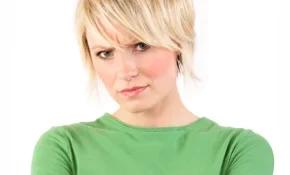
“There are other terms of affection that do not have the same degrading connotations”
“When used by men to refer to a woman, it is sexist, patronising, and designed to belittle women”
“Each person has a name and it is disrespectful not to call that person by their given name. The use of sexist terminology is a 'bullying' tactic and should not be tolerated”
“You wouldn't catch a male bus driver calling another man 'darling' or 'love' so why should women put up with it?”
“It is a form of assuming these people are your possessions”
“In today's society it is not really appropriate to call a grown woman ‘babe’, ‘honey’, ‘darling’, ‘love’ etc. For one thing, it is a form of diminishing the woman to a younger and therefore more controllable state”
“It can be used as a way of putting someone down, exerting supposed superiority over someone. It is the same when one man calls another man ‘son’”
“I generally find it sexist when given from someone presenting as male to someone presenting as female, because over-familiarity and terms of endearment that imply childishness have been used for hundreds of years to belittle women and oppress them. And to suggest that women aren't still marginalised in many ways, even in British society, is simply naive”
Argument 2 - They're too familiar
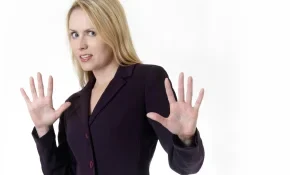
“It may be a term of endearment in a mutually loving relationship but assumes too much from strangers”
“I hate it when I get called ‘love’ or ‘darling’ by a stranger. I walk away & certainly wouldn't give them the time of day”
“I think it is quite uncalled for a man to call a woman he doesn't know with these terms. He wouldn't do it to another man”
“It suggests familiarity; I like to keep a distance from people I don't know that well”
“It's horrible and unnecessarily intimate”
“If you do not know the person being addressed it is quite offensive to assume so much familiarity without their permission”
“It’s Cringe-making. I hate the informality and rudeness of this form of address, especially in shops”
“You don't know a stranger. These are terms of endearment you should use with friends. Use ‘MISS’”
“I do personally prefer not to have them used on me. There are plenty of ways of being warm, friendly and matey with strangers that aren't so problematic”
Argument 3 - They're too sexually explicit
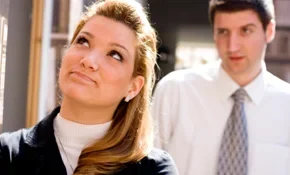
“It suggests prettiness or a person's sexuality “
“’Babe’, ‘love’ and ‘darling’ are pet names you call your girlfriend/wife etc. By calling strangers this, you are implying that the only identity and worth of a woman is directly connected to men. It's basically treating women like they're only sexual objects which belong to men and nothing else”
“My wife finds it offensive, and usually ageist”
“’Babe’ isn't acceptable… ‘Babe’ seems to refer more to how the person perceives you - suggests more as a sex object, hence unacceptable/irritating. Body language and the intent are very important in where it is a sexually degrading reference or sexual banter”
“When the individual does not know the recipient of this type of language, it can be offensive and sexist (e.g. builders shouting these words at passing females, or guys shouting it from their vans; which they invariably do!!) I am a male and I find it offensive!”
2. These terms are perfectly fine because…
Argument 1 - They're friendly

“Calling someone love is a typical way of addressing someone on a friendly basis; it is not sexist”
“I have yet to experience it said in a nasty, unfriendly way”
“It just clearly is a term of endearment. And I think that we could do with more endearment in the world! Obviously I am not talking about if somebody was to say it in a sarcastic sort of way, or if it's a professional situation with an imbalance of power”
“It should be used between people who care about each other”
“It's a handy moniker for those who have forgotten the name of a loved one”
“It's a friendly, affectionate way of addressing someone”
“Mostly just a way of being nice to the women we meet and talk to on a daily basis”
“When intended as such, it's just an informal way of communicating with someone you feel comfortable with. We are a social creature and displaying an acceptance and comfort with a fellow member of your circle of associates is perfectly acceptable”
“It’s what I call all my female friends and none of them ever complain, they love to be called ‘babe,’ it makes them feel young and trendy”
“It’s a phrase designed to put people at ease. They will understand that you are trying to be friendly”
“Because the general use of those words in a family environment are terms of endearment”
“It makes the person saying it sound more friendly and approachable”
“I think for strangers to do it is slightly annoying but if they then become familiar with you… So a bus driver every morning (is saying it) then it’s only friendly endearment”
“It takes away the coldness of life and is friendly, breaks down the stranger part of talking I do not find it unpleasant at all”
“I used to be a milkman and used ‘love’ or ‘darling’ frequently with no problems, I was careful who I used it to though”
Argument 2 - They're a local way of speaking
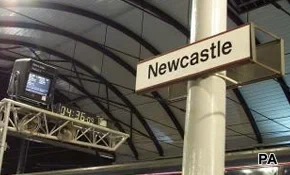
“Nothing wrong with it - it's a form of local dialect. It is generally not said with sexist intent and is just about being friendly and informal”
“Normally it is used in my home city of Newcastle as a friendly term or a sign of liking. It may be different in other cities but as long as it's not said in a mocking or aggressive way then I don't see how it can be sexist. It doesn't incite any view of inequality between the sexes; I think interpretation is the problem”
“Of course it depends how it's said but as a Northerner it is very common to be called ‘love’ or ‘pet’, and I find it rather nice”
“They are a normal part of the local dialects in various parts of the U.K. and are never intended to be offensive. They are preferable to the obscenities which have become part of everyday usage”
“Widely used in the Midland and North, why should such words cause offence?”
“Many counties and districts have their own terms of endearment; ‘cocker’, ‘duck’ and these are accepted within those areas”
“I call everybody ‘Love’ or ‘Mate’ it depends from which part of the UK you come from”
“I live in the north and was brought up to call females love as a term of friendliness that is all. Any other interpretation is nonsense”
“It's a social term, nothing to do with being sexist. I am from Stoke and everyone here calls you 'duck', I don’t take offence at being called a duck!!”
People from Yorkshire use the term ‘love’ all the time. The world is going PC mad, we have more pressing issues such as racism and discrimination to worry about”
Argument 3 - Some people are just too sensitive
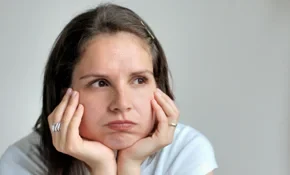
“It's just normal- a lot of fuss about nothing. People are too sensitive if they object to innocent remarks”
“Because they are intended as compliments. If somebody interprets them in a different manner, they are fascist (i.e. they dictate the meaning and intent of others in an arrogant manner)”
“It’s not intended to be offensive, so shouldn't be taken as being offensive. Use some common sense people!”
“I think that most people who use these terms do not mean any offence by them and people who take offence are far too sensitive or precious about it”
“I have been called these sort of names by stall holders, etc. all my life it doesn't worry me at all, I am female 66years old. There is way too much political correctness. I have always been one for women’s rights, but this has never been a problem for me. There are way bigger issues out there”
“It's never used in a sexist way. It's always used by people communicating with you. It's often used like: 'How are we today, my love.' Or 'Excuse me my Love.' All three are also used in a relationship. Hardly an offensive term”
“It’s sometimes easier to say ‘babe’ or ‘darling’ because it’s better than not having something to say… Sometimes it’s automatically said without realising. I think it would be TOO politically correct if we were not able to use the English language for these small endearment words”
“People are too touchy about things like this now”
“It is used traditionally as a term of endearment for the fair sex. Not meant to be a term of sexism. It has to some degree a sense of respect”
“I don't think there is any harm in it - could call something worse! It’s nice to be called ‘love’ or ‘darling’”
“I often use the word 'love' and I'm certainly not a sexist person! I would never use 'babe' as I think that word is too personal - 'darling' is OK by me if one knows the lady well!”
“Today, people take offence too easily. I've been called Darling and I'm a bloke. What's to get upset about?”
“It can only be seen as sexist in the eyes of oversensitive politically correct people with far too much time on their hands”
“The terms are positive words rather than negative - why should calling someone positive be viewed in a negative light?”
3. The offensiveness depends...
Argument 1 - On the delivery
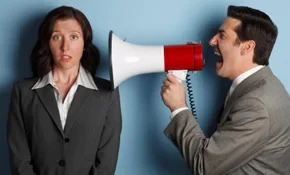
“For some people it is not what is said but more the way it is said!! I.e. is there respect in the voice delivering the term or a sneer?”
“I think that modern communication can make words be read out of context for example, you could say a sentence to a person and they are not offended by it. However, the exact same sentence could be read by the same person in email or text format and they could be offended as they cannot gauge tone or body language”
“Some people may say it, for example, as an accident, or as a way of creating an informal atmosphere, whilst some people do mean it in a way that implies sexism”
“Sometimes it's just a lazy way of being friendly. Other times it's condescending and cheap”
“If it was meant as in indicated by tone or body language to be a friendly or endearing term then it would not be sexist. If it is used in a tone which can be viewed as belittling a woman or judging her on her gender it would be sexist”
“’Babe’ to a stranger should not be used; it would be both odd and perhaps have overtones of making an advance on someone. However the other two aren't particularly offensive. It's a matter of context if they ever are, but I think it would have to be quote extreme circumstances for them to be”
“I think men sometimes have problems on how to address women. So using ‘babe’ or ‘dear’ is a solution. I see it as a form of endearment, but it can also be creepy too. I dislike a woman I don’t know calling me babe. Especially a younger one”
“If the term is used in a conversation plainly (e.g. colloquially) then I think it is fine (akin to calling people ‘pal’ or ‘mate’). It's when it is followed by certain looks or actions which turn women into objects”
“It’s the tone of voice used than changes its use. ‘Look love, I don't care what you say, you aren’t getting paid’ isn't the same as ‘well my love, that was a good dinner wasn’t it?’ and ‘well babe, do you want to go out for dinner’ isn't the same as ‘you're a bit of a babe, do you want a drink?’ The same applies with the other words. It’s not the word; it’s the context that it is used”
“'Babe' has too many sexual/relationship connotations and is unacceptable from a stranger. 'Love' or 'darling' are fine -- if you'd say it to your grandmother, then it's ok!”
Argument 2 - On the person saying it

“If it’s a bus driver greeting passengers, then that's a nice friendly greeting. If it's a male stranger coming up to me and putting himself in my face with a ‘hi babe’, that's definitely NOT nice”
“As a young lady, I would feel slightly threatened by an older man calling me 'babe', and actually really uncomfortable”
“I have absolutely no objection if an older person (male or female) calls me 'love' or 'darling' as it is most frequently intended in a friendly way. I have a severe objection when a younger male calls me 'babe’, ‘love' or 'darling' as (and it does depend on the intonation and manner of the way it is said) it is frequently a way of indicating that I have a lower status as a woman than they have as a man. I am bemused by the current fashion of women referring to other women as 'babe'”
“I have no problem calling my female friends by such affectionate terms but I'm not sure of the appropriateness of using these terms with a stranger. I would imagine it depends on the personalities involved and the circumstances”
“If it's someone saying it in a professional context, e.g. someone working in a shop or a bus driver, its ok as long as they’re using the word equally (by this I mean not just referring to young attractive women, but to most other women as well)”
“I would dislike being called ‘babe’ as I feel this is a more personal term that my partner uses, so I would feel uncomfortable being referred to in this way by a stranger, particularly if they were saying it in a way that could be seen as sexist or pervy”
“It depends upon the relationship with the speaker (e.g. partner vs. stranger) as well as the gender. I think most women would be less offended if called 'love' etc by another woman”
“I'm guilty of using these words, and I would expect to be told off if the person felt in any way offended. I am a granddad and it's the way I address my children and grandchildren, so it's sometimes difficult not to speak to strangers in the same way”
“Personally I would be unlikely to use any of those terms to strangers - maybe 'love' to a child. They could certainly be used in a sexist manner, but it is the manner that is sexist, not the word”
“Because if a friend says ‘love’ - I believe them. If I'm in the North/ Midlands and they say ‘love’, I get it. If a colleague or a stranger on the tube calls me ‘love’, I want to thump them”
“Entirely context-dependent. If you're cute and I like you, it's flattering if you call me that. If not, then it's outrageous”
“If a man in the workplace uses this term when referring to female members of staff it is often in order to emphasise their authority or to demean the female”
“If it is a tradesman or someone caring for me, that's just fine, but if it is coming from staff in a shop or bank, no that is not professional”
“‘Babe’ might be appropriate at a bar, but not on the street. Some older people use’ darling’ and it is usually meant innocently. However, if it was used to be patronising it would be offensive. It may be inappropriate for a public sector worker, particularly teachers, nurses and police to use those words when talking to members of the public”
“It's a generational thing - the older generation use it as a term of endearment whereas the younger generations tend to use it in a sexist/flirty manner”
Argument 3 - On the location
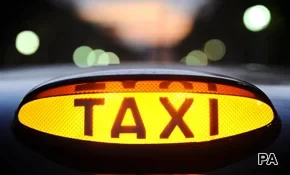
“When I first moved west and was called 'my lover' I thought it was offensive until several people used the same expression and I realised it was commonplace to the area. Similarly, who could take offense at being called 'love' by a London cabbie? It's one of the things I miss about London”
“Growing up in the Midlands, adding words such as "duck", "chicken" and "love" get added on to all sorts of sentences without thought”
“In parts of the country, these terms are part of the local dialect (e.g. "love" in Yorkshire, used by both sexes to address both sexes)”
“It depends on regional location as much as anything. Down south, you don't hear that sort of thing as often, so it might be taken as sexist. Whereas, up north, where there usages like this are commonplace, it would be easy to see how such things would be perfectly normal”
“As a southerner, I was shocked to hear one couple calling each other ‘babe’ in perfect sincerity. It just sounded wrong”
“It's mostly regional behaviour. We're becoming a nation where indigenous regional terms & expressions are being devalued as they're not seen as being PC”
“Because some men, particularly "northerners" use such terms in a manner born of ingrained habit where no offence is intended or taken”
“For some people it is just part of their micro culture - like being called ‘Jimmy’ in parts of Glasgow”
“Certain words are acceptable as a part of regional dialect, being from Yorkshire I call a number of people 'duck', however I wouldn't call anyone 'babe' regardless of my relationship to them. Whereas in the south such words are commonplace and acceptable as a part of dialect”
“As a man in Yorkshire I was frequently called 'my love' by older strangers, as it was the way they tended to talk. It is, however, an amplifier. If someone is being patronising, even if unintentionally, and then ends it with 'dear', 'love', or 'darling', it shows massive contempt”

Do you think calling someone ‘babe’ is sexist, affectionate, or does it all depend…?
What do these words mean to you? In what context do you think it is okay to call someone ‘babe’, love’, or ‘darling’? Is the term harmless or should we discourage its use?
Join the debate by using Disqus below






